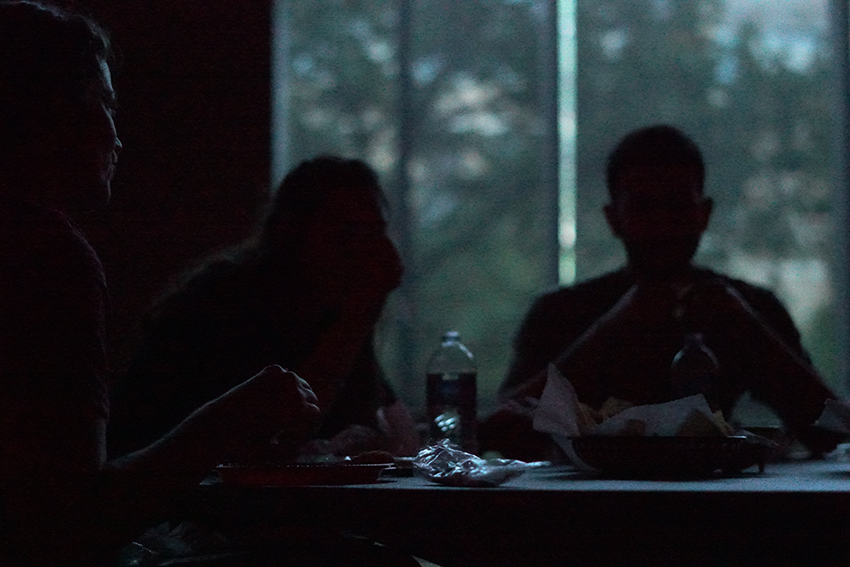Without lights to guide their forks, participants had to rely on their other senses to eat the rice in their taco dinner.
Forty to 50 students participated in the semesterly Dinner in the Dark event, hosted Thursday at the Student Activity Center by the Disability Advocacy Student Coalition. The dinner is held in complete darkness in order to simulate the adaptations visually impaired people have to make. After the dinner, students engage with visually impaired students through a panel discussion.
DASC President Kathryn Strickland said the point of the event is not that being visually disabled is difficult, but rather the experience of eating in the dark is an opportunity for visually abled students to learn more about visual impairment.
“Yes the novelty or the draw of the event is eating in the dark, but … we don’t necessarily want the message of the event to be ‘Oh, living with a visual impairment means you’re going to fumble while eating and life sucks,’” government senior Strickland said. “They adapt to how they live their life.”
Alex Pacl, a speech language pathology graduate student, said the lack of vision changed the way she interacted with her surroundings.
“I was surprised at how I naturally began to rely on my other senses,” Pacl said. “It happened without me consciously thinking about switching my focus to it.”
Strickland said the panel provides students with an opportunity to hear from visually impaired students of all types.
“We do have some (panel speakers) that are completely blind, we have some that are low vision, so it’s really interesting to have that kind of panel where our guests, who come and eat with us, learn that there is such a spectrum,” Strickland said. “They get to learn all different levels and all different kinds of visual impairment through this.”
As a student with a visual disability, marketing junior Emeline Lakrout said Dinner in the Dark is a great environment for those who do not regularly engage with the disabled to learn about and interact with them.
“I think that Dinner in the Dark is a great start because one of the big challenges we have as a disability organization is reaching out to abled students and abled students who wouldn’t already think about engaging with disability,” Lakrout said. “They have a huge stigma around it.”




















